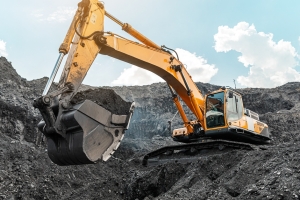What You Need To Know About Industrial Packaging

Industrial packaging plays a crucial role in the logistics of many industries, ensuring that products are safely transported, stored, and delivered to their final destinations. Whether you’re involved in manufacturing, distribution, or retail, understanding the nuances of industrial packaging is essential for maintaining product integrity and optimizing operations. Read on to learn what you need to know about industrial packaging.
Protection and Durability
The primary function of industrial packaging is to protect products from damage during transit and storage. This includes safeguarding items against physical impacts, environmental factors like moisture and temperature changes, and contamination. Packaging materials must be durable and designed to withstand the rigors of handling and transportation. For example, heavy-duty corrugated cardboard, metal containers, and robust plastic packaging are often used in industrial settings to ensure maximum protection. Selecting the right packaging is vital for maintaining product quality and reducing the risk of losses due to damage.
Compliance With Regulations
Industrial packaging is subject to a variety of regulations and standards that vary depending on the industry and the type of goods being packaged. These regulations ensure that the packaging meets safety, environmental, and health requirements. For instance, the packaging of hazardous materials must comply with strict guidelines to prevent leaks, spills, or exposure during transit. Failure to adhere to these regulations can result in fines, legal issues, and damage to a company’s reputation. Staying informed about relevant packaging regulations is essential for maintaining compliance and avoiding potential pitfalls.
Cost-Effectiveness
Cost is a critical consideration in any business operation, and industrial packaging is no exception. Companies must balance the need for durable, compliant packaging with the goal of minimizing costs. This involves selecting materials that provide the necessary protection at an optimal price point and considering factors like packaging weight, which can affect shipping costs. Additionally, efficient packaging designs that reduce material waste and streamline packing processes can contribute to overall cost savings. Evaluating packaging options with cost-effectiveness in mind is key to maintaining profitability.
Sustainable Industrial Packaging
Sustainability is increasingly becoming a priority in industrial packaging. As businesses strive to reduce their environmental footprint, the demand for sustainable packaging solutions has grown. This includes using materials that are recyclable, biodegradable, or made from renewable resources. Sustainable industrial packaging not only benefits the environment but can also enhance a company’s brand image and meet the expectations of eco-conscious consumers. Implementing sustainable practices in industrial packaging is not only responsible but also strategic for long-term business success.
After reviewing what you need to know about industrial packaging, you can make informed decisions that enhance product protection, ensure regulatory compliance, and optimize costs. Whether you’re looking to improve your packaging processes or reduce your environmental impact, understanding the essentials of industrial packaging will help you achieve your goals.





